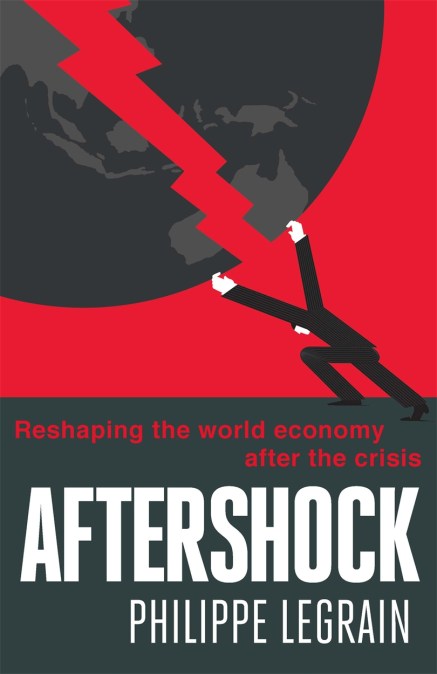Aftershock
The financial crisis brought the world to the brink of economic breakdown. Now bankers’ bonuses are back, house prices are rising again and politicians promise recovery while unemployment rises, frictions with China grow and the planet overheats. Is this really sustainable?
In this incisive assessment of the post-crisis world, Philippe looks at what went wrong, and how the world’s leaders and financial institutions can learn from their disastrous mistakes. Reporting first-hand from around the world, he explains how the world economy is being reshaped and what it means for jobs and our future prospects. He sets out the huge dangers ahead – and the opportunities to craft a fairer, safer, richer and greener world in this wide-ranging, brilliant and impassioned book.
In this incisive assessment of the post-crisis world, Philippe looks at what went wrong, and how the world’s leaders and financial institutions can learn from their disastrous mistakes. Reporting first-hand from around the world, he explains how the world economy is being reshaped and what it means for jobs and our future prospects. He sets out the huge dangers ahead – and the opportunities to craft a fairer, safer, richer and greener world in this wide-ranging, brilliant and impassioned book.
Newsletter Signup
By clicking ‘Sign Up,’ I acknowledge that I have read and agree to Hachette Book Group’s Privacy Policy and Terms of Use
Reviews
** 'Legrain provides a timely and amusing account of how we were all effectively mugged by sharp-suited bankers with the connivance of politicians leading up to the virtual meltdown of the global financial system in 2008
** 'Legrain has that rarest of qualities in these troubled times: he's an optimist. With meticulous reporting and interviews from Iceland to Australia, he sets out a blueprint for a new economic world order
** 'Many of the books about the economic crisis have been descriptions of the dramatic events at Lehman Brothers . . . Rarer have been books that take a constructive approach, proposing an agenda for how things could be improved in the future. Philippe Le
** 'Mr Legrain has a gift for combining big numbers that offer a sense of the scale of the global build-up . . . This makes his book a particularly good survey of what made up the unpleasant cocktail which the world has yet to digest

